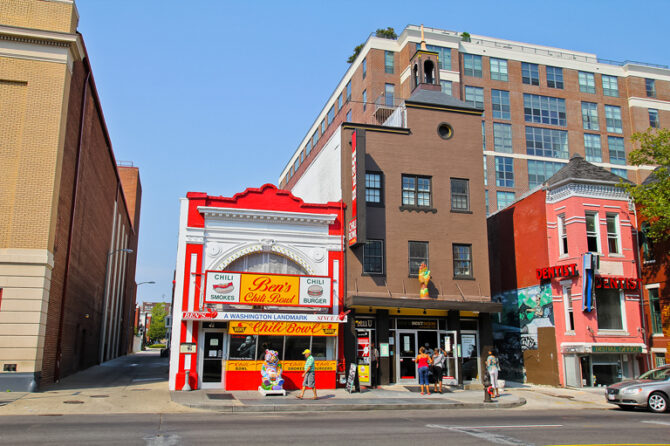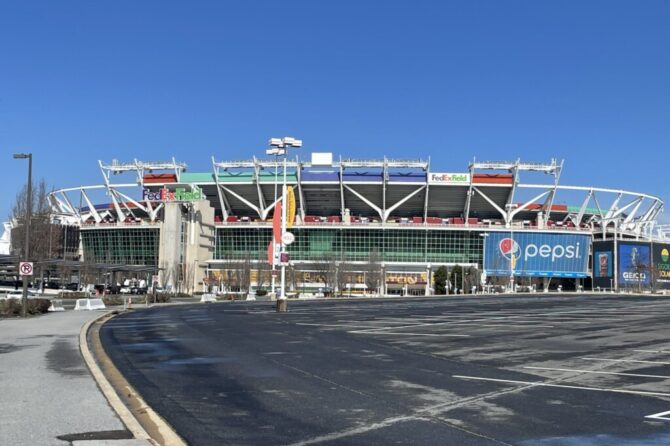MARYLAND MATTERS: As the afterglow from the Baltimore Orioles’ marvelous season subsides and scrutiny of the proposed stadium deal between the Orioles and the state intensifies, one thing is clear: In the staring contest between Orioles owner John Angelos and Maryland Gov. Wes Moore (D), Moore blinked first.
Moore’s overeagerness to sign the Orioles to a long-term lease produced a non binding “memorandum of understanding” between the Orioles and the state that has drawn heavy criticism from multiple sources. For example, the editorial advisory board of the The Daily Record pulled no punches, labelling it a “bad deal.”
In August, before the MOU was signed, Baltimore Sun columnist Dan Rodricks chastised Angelos for making Oriole fans “jittery” about the team’s future in Baltimore by bemoaning the financial challenges of remaining competitive as a “small market” team in a story in the New York Times. My guess is that it was one fan in particular — Moore — who Angelos wanted to make jittery, and the tactic appears to have worked.
Two provisions of the MOU are especially problematic. Former officials of the Maryland Stadium Authority and others have come out en masse against the proposal to shift responsibility for maintaining and upgrading Oriole Park from the authority to the Orioles. Money for improvements will come from the initial sale of $600 million worth of taxpayer-financed bonds and other state revenue deposited in a “capital improvement and repair reserve fund.”
The Orioles would stop paying rent to the authority for the use of the stadium in exchange for assuming routine operation and maintenance costs. The state would put $3.3 million per year into a fund to pay the costs of “safety and repair projects” at the ballpark. There is understandable angst about putting upkeep of the publicly owned stadium that remains in excellent condition and is still considered one of the best baseball stadiums in the country in the hands of an owner who publicly cites the need to cut corners to keep his team profitable.
The proposal to transfer the development rights to land around the stadium to the Orioles, including the B&O Warehouse and Camden Station, has also drawn fire. There are valid objections to surrendering control of the type of development around the stadium to a private corporation, but the most vehement criticism is over the compensation.
According to a story in the Sun, University of Colorado Denver professor Geoffrey Propheter stated that the $94 million that the Orioles would pay for those rights over the 99-year term of the proposed ground lease is a “trivial amount” when factors like inflation are considered. Dennis Coates, an economist at the University of Maryland Baltimore County called it a “pitiful amount of money” and Kennesaw State University economist J.C. Bradbury described it as “essentially gifting the land to the Orioles.”
So, why did Moore blink? Recent bad news that makes it more likely that the Preakness Stakes will leave Baltimore on Moore’s watch may have added to the pressure on him to cut a deal.
Craig Fravel is CEO of 1/ST Racing, the parent company of the Maryland Jockey Club, which operates Pimlico Race Course and Laurel Park. In September, he told members of the Maryland Thoroughbred Racetrack Operating Authority that the days of his company operating at a $10 million-a-year loss “with no prospect of turning around” had to end soon. Even the Preakness has become a money loser, losing $2.9 million in 2022 and $1.9 million this spring.
George Mahoney is the Maryland Racing Commission’s non-voting representative on the authority. He told Fravel: “For the horsemen, the horse breeders, and taxpayers, the state of Maryland, to invest heavily in your business, I think, would be wonderful, but the reality is, your presentation this morning was red ink, red ink, red ink. It’s not cheerful to hear.”
LifeBridge Health, which operates Sinai Hospital, announced it has suspended plans to develop a 22-acre health care campus next to Pimlico Race Course. The campus is a major component of the state’s $375 million plan to redevelop the racetrack and keep the Preakness in Baltimore. A $100 million ambulatory services building that was the centerpiece for the campus is likely to be dropped from the plans permanently and built closer to Sinai, about a half mile away.
The Preakness situation is ominous. No Maryland governor, particularly one from Baltimore, wants to have to report that he or she has failed to sign a long-term lease with the Orioles and that oh, by the way, the Preakness is leaving Baltimore.
Regardless of the reasons, Moore’s concessions to Angelos are discouraging. Tough decisions lie ahead, and Maryland needs strong leadership and political courage from its governor like never before.
The final agreement with the Orioles must be approved by the state Board of Public Works, on which the governor has one vote. Strong leadership does not include passing the buck to the two other members, Comptroller Brooke Lierman (D) and Treasurer Dereck Davis (D), placing them in the position of having to reject a bad deal he supports.
Everyone makes mistakes, although few elected officials have the courage to admit one of this magnitude. Moore might be surprised at the credit he receives from citizens if he musters the courage to admit that the proposed agreement with the Orioles is not in their best interests and needs to be renegotiated.










